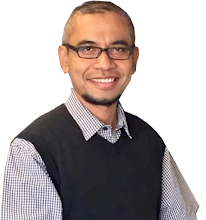(First published in The Jakarta Post, 11/7/2011)
The upcoming 2014 presidential election is predicted to be a fierce contest and will be interesting to watch.
Unlike previous elections which featured senior figures such as Jusuf Kalla from Golkar Party, Susilo Bambang Yudhoyono from the Democratic Party, Amien Rais from the National Mandate Party (PAN) and Megawati Soekarnoputri from the Indonesian Democratic Party of Struggle (PDI-P), in 2014 it is very unlikely that these great figures will compete. While Yudhoyono cannot run due to term limits, the others will face age constraints.
In the next three years, Megawati will reach the age of 67; Jusuf Kalla, 72; Amien Rais, 70; and Prabowo Subianto will be 63 years old. Some other top leaders of the established political parties will also no longer be young enough in 2014, as in the case of Aburizal Bakrie and Hatta Rajasa.
While there is no crystal clear border line to call someone “old” or “young”, the figures over 60 years old mentioned above could be included in the category of “very senior”, if not “very old”, and therefore it is reasonable for us to expect them to give the opportunity to younger people to contest the presidential election.
The need to have younger candidates in the next presidential election is apparently realized by many political parties.
Therefore, if we look at the current moves of each political party, almost all of the parties have consciously prepared their young potential leaders as early as possible. This is likely to be attributable to the belief that only a party with young figureheads will earn points at the next general election.
As a result, each political party has deliberately promoted their young contenders to the public.
Puan Maharani, for example, has been groomed to continue Bung Karno’s bloodline in the leadership of PDI-P. Democratic Party chairman Anas Urbaningrum is likely to be part of the party’s strategy to use youth to maintain its lead in the next election.
Similarly, Golkar Party has Idrus Marham, who was 46 years old when elected as the party’s Secretary General in its congress in Pekanbaru in 2009.
The same trend can also be seen in “middle parties”, such as PAN, the United Development Party (PPP), the National Awakening Party (PKB) and the Prosperous Justice Party (PKS).
Perhaps the case is a bit different for PKS, because this Muslim-based party has been led by young Muslim activists since its establishment. Most of its leaders are under 50 years of age.
The question is whether this party has a strong young figure to contest the 2014 election.
Apart from political regeneration, our nation’s challenges will obviously be heavier and more complex in the future.
Internal challenges, such as separatist threats, terrorism, poverty, corruption, high unemployment and backwardness in education remain unresolved.
Those exclude outside threats, such as the negative effects of globalization, the free market system, global terrorism and the loss of national sovereignty over some territorial borders in the region.
Thus, when we talk about national leadership, we cannot just rely on young leaders. As Anis Baswedan, Rector of Paramadina University, has argued the most important issue is the progressive new ideas that the candidates offer, not their age.
In other words, the young leaders that we want are those who are progressive in soul, visionary, competent, full of integrity, and have perseverance in building the country as exemplified by many of our young leaders in the pre- and early post-independence eras.
With these characteristics they can be expected to lead the country out of its various complex tribulations.
We are thus expecting the emergence of youngsters of the caliber of Wahidin Soedirohoesodo who founded and led the Budi Utomo movement in 1908.
We also wish for the birth of far-sighted young leaders like Mohammad Yamin who declared the Youth Pledge in 1928.
Moreover, young people whom we expect to lead the nation are those with a warrior mentality and who can think “out of the box” as exemplified by Sukarni, BM Diah, et al, who “forced” Sukarno-Hatta, who was also young, to immediately proclaim the independence of this nation in 1945.
Perhaps it is too early to expect a young candidate to be the new state leader in 2014.
However, figures like Puan Maharani, Idrus Marham, Anas Urbaningrum, Anis Matta (PKS), Muhammad Romahurmuziy (PPP), Drajad Wibowo (PAN) and Yuddy Chrisnandi (Hanura) have the potential in future elections.
And the choice is not just limited to these names as there are many other potential young leaders, including those not engaged in political parties, such as Anis Baswedan and Sandiaga Uno.
Hopefully, they can show their capacity and perform well in their respective fields so that they will gain significant credit to contest the next presidential elections — if they have the opportunity to do so.
The writer is a 1998 reformasi activist and currently doing his doctoral degree at Monash University, Australia.

